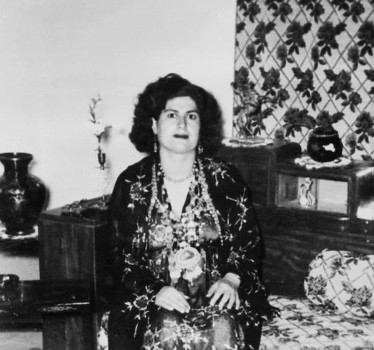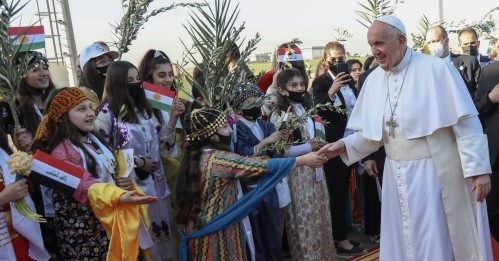Richard Wilding describes the appointment of Emir Faisal as king of the newly created state of Iraq in 1921 and Sheikh Mahmud Barzanji’s declaration of an independent Kingdom of Kurdistan in 1922.
During the First World War, the British government agreed to recognize Arab independence after the war in exchange for the Sharif of Mecca and his Hashemite family launching an Arab revolt against the Ottoman Empire. The Sharif obliged and Arab forces, led by his second son Faisal, expelled the Ottomans from the Hejaz (now in Saudi Arabia), in a campaign later romanticized by T.E. Lawrence.
After the war, Britain sought to counter Ottoman claims to the disputed Mosul vilayet (province) by appointing Sheikh Mahmud Barzanji as hukmdar (ruler) in Sulaymaniyah. Finding the restrictions placed upon him by the British too severe, Mahmud led a Kurdish uprising. He was captured and sentenced to death, which was later reduced to 10 years of imprisonment, and he was exiled to India.
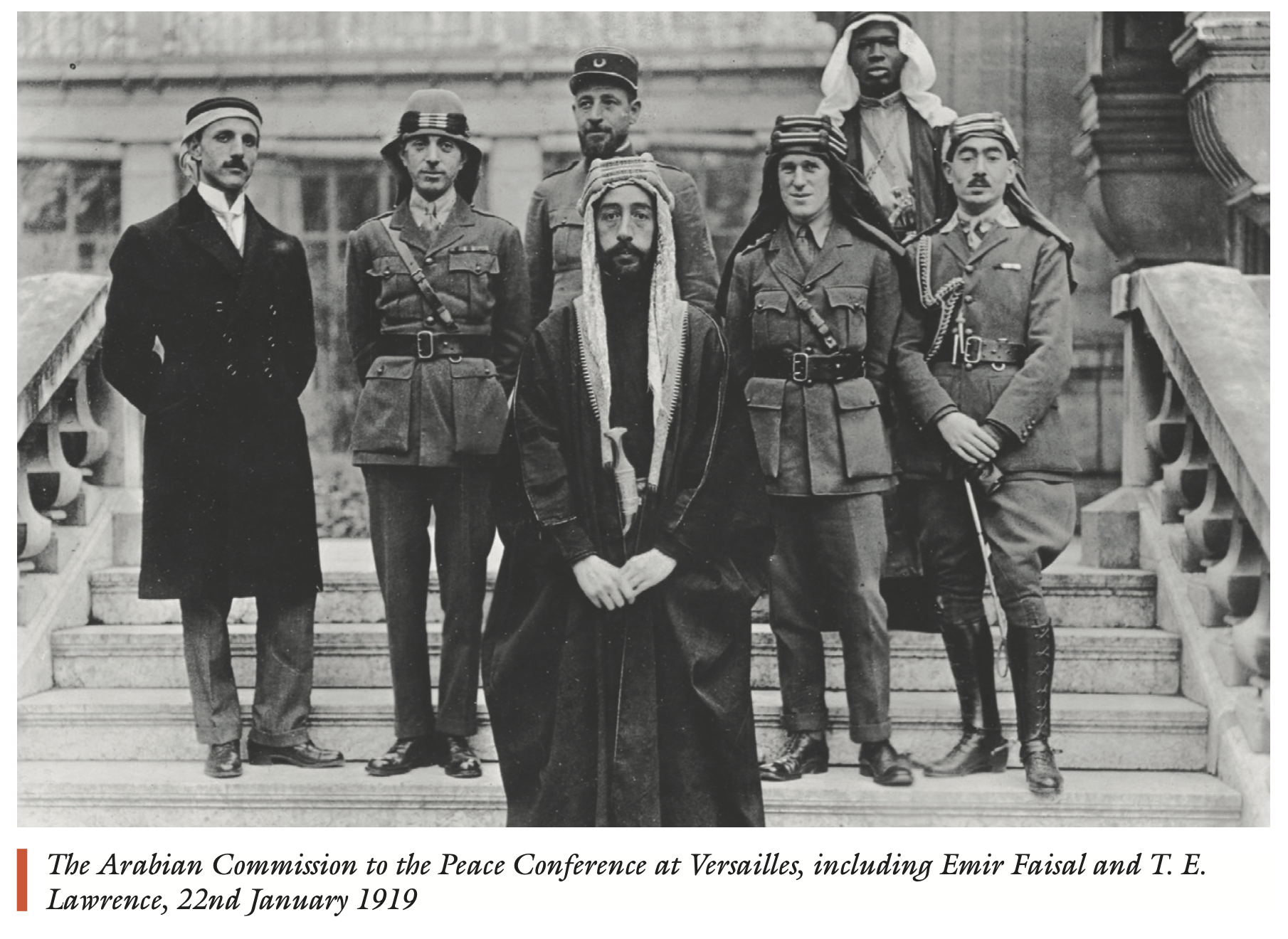
Partitioning the Ottoman Empire
In January 1919, Emir Faisal led an Arab delegation to the Paris Peace Conference. With the support of Gertrude Bell and other influential British “Arabists,” Faisal argued for the establishment of independent emirates for Arab regions previously ruled by the Ottoman Empire.
Faisal was proclaimed king by the Syrian National Congress in Damascus on March 8, 1920. However, his reign in Syria was to last just four months. At the San Remo Conference in April 1920, the League of Nations Mandate for Syria was allocated to France and the Mandate for Mesopotamia to Britain, reflecting the earlier secret Sykes-Picot Agreement. Faisal’s dream of an independent Arab kingdom of Syria thus ended in July 1920, when the French ejected him from Damascus. The British, especially T.E. Lawrence, believed that Britain had reneged on its promises to the Hashemite family and, in effect, owed Faisal a kingdom.
On August 10, 1920, despite rapidly decreasing power and legitimacy back home in Turkey, the Ottoman Grand Vizier signed the Treaty of Sèvres with the Allied powers, finalizing plans for the partitioning of the Ottoman Empire. The treaty included provisions for an independent Kurdish state, reflecting earlier British plans drawn up in 1918. However, these terms stirred hostility back home in Turkey where, amid the nationalist revolt led by Mustafa Kemal Atatürk, the treaty’s signatories were stripped of their citizenship.
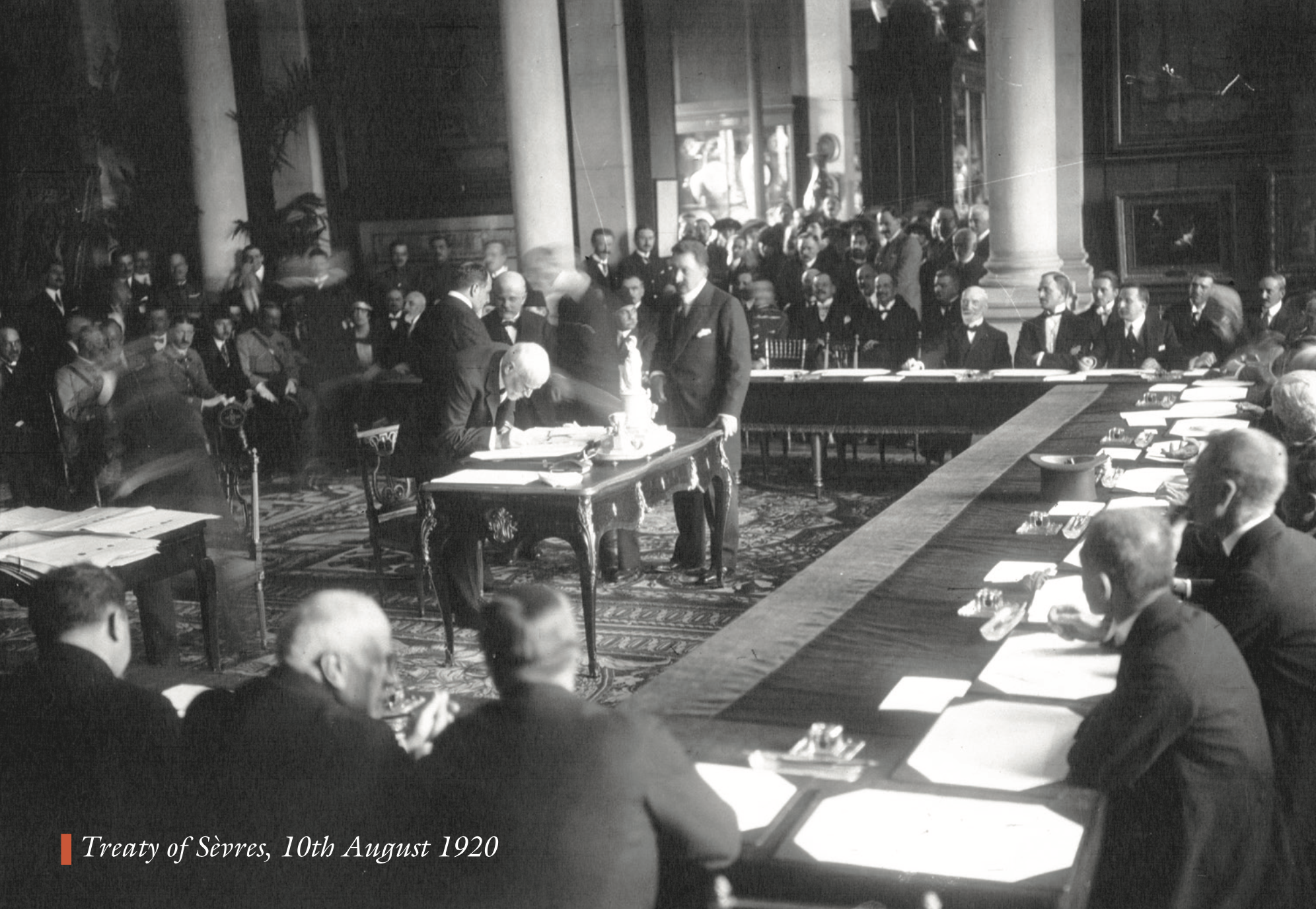
From the end of 1918 until 1921, the situation in Iraq remained dangerously unstable. The British military administration was seen as infidels by the Shi’a majority and by many Sunnis, who regretted no longer being under the Ottoman Caliphate. In 1920, a revolt began in Baghdad and spread to Shi’a areas in the south. Its demands were independence from British rule and the creation of an Arab government.
In March 1921, Winston Churchill, then UK Secretary of State for the Colonies, convened a conference in Cairo. The British government, alarmed by the unrest in Iraq, agreed to support the fugitive Faisal as candidate for a newly created throne of Iraq. The British hoped that Faisal, as a direct descendant of the Prophet, would be granted sufficient legitimacy by the Arabs, but as an outsider in Iraq he was also weak enough to remain compliant to British interests. On August 23, after a referendum in which the affirmative vote was officially returned as 96%, Faisal was proclaimed King.
The dissenting 4% was chiefly accounted for by Kirkuk, where the Turks favored a ruler to be chosen from the Ottoman dynasty, and the Kurds asked for a Kurdish administration. The liwa (district) of Sulaymaniyah refused to participate in the referendum, and no representative from any liwa attended the accession ceremonies.
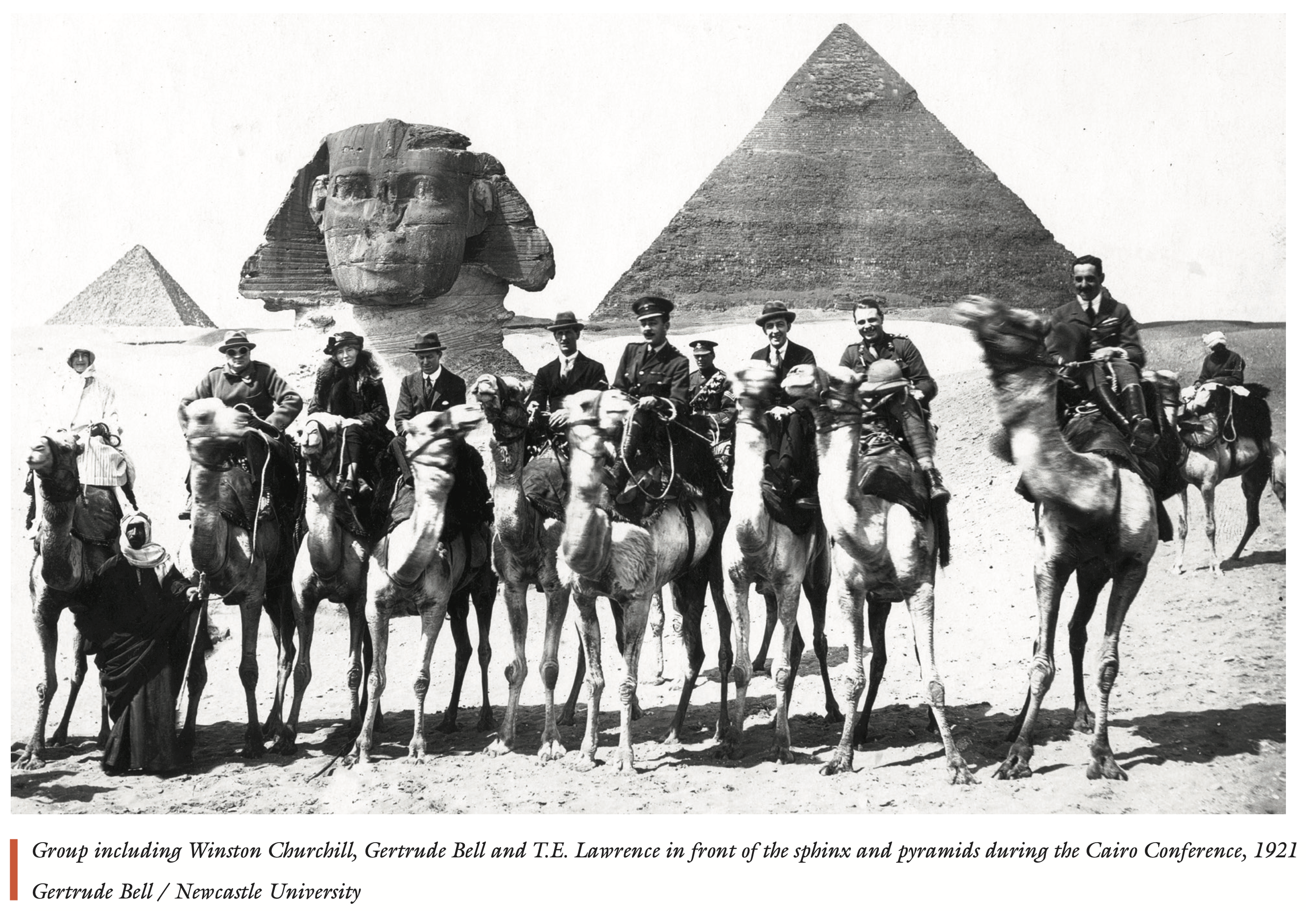
Amid rebellion, Mahmud reenters the scene
After the Treaty of Sèvres, the Turks redoubled their efforts to impress upon the inhabitants of the Mosul vilayet that the treaty was not worth the paper it was written on. There were threats of invasion, warnings to “traitors,” and, above all, the religious appeal for loyalty to the Sultan, who was also Caliph.
The Turkish government had given one of their agents, Ramzi Bey, the title of Kaymakam of Rawanduz and dispatched him to the district. On his arrival towards the end of May, he gave assurances of the imminent arrival of large Turkish reinforcements, with whose help Sulaymaniyah, Kirkuk, and Erbil were to be wrested from the British. He was followed in the middle of June by Colonel Ali Shefiq, popularly known as Özdemir (“pure iron”), who was to play the leading role in inciting rebellion among the Kurdish tribes.
At the end of May, the Turkish incitement triggered a revolt by the Hamawand tribe led by Kerim-i Fattah Beg, who had joined Mahmud in the Kurdish uprising of 1919. On June 18, British officers Captain Bond and Captain Makant were killed by the Hamawand in the Bazian Pass, which was reported as a treacherous murder in British newspapers.
By this time, Mahmud had already been brought back from India by the British to Kuwait. The logical development was a decision to return him to Sulaymaniyah to dampen the growing Kurdish rebellion. In return, Mahmoud promised to prevent the Turks from entering the liwa of Sulaymaniyah. He also accepted the condition that he would on no account interfere in the affairs of Kirkuk and Erbil.
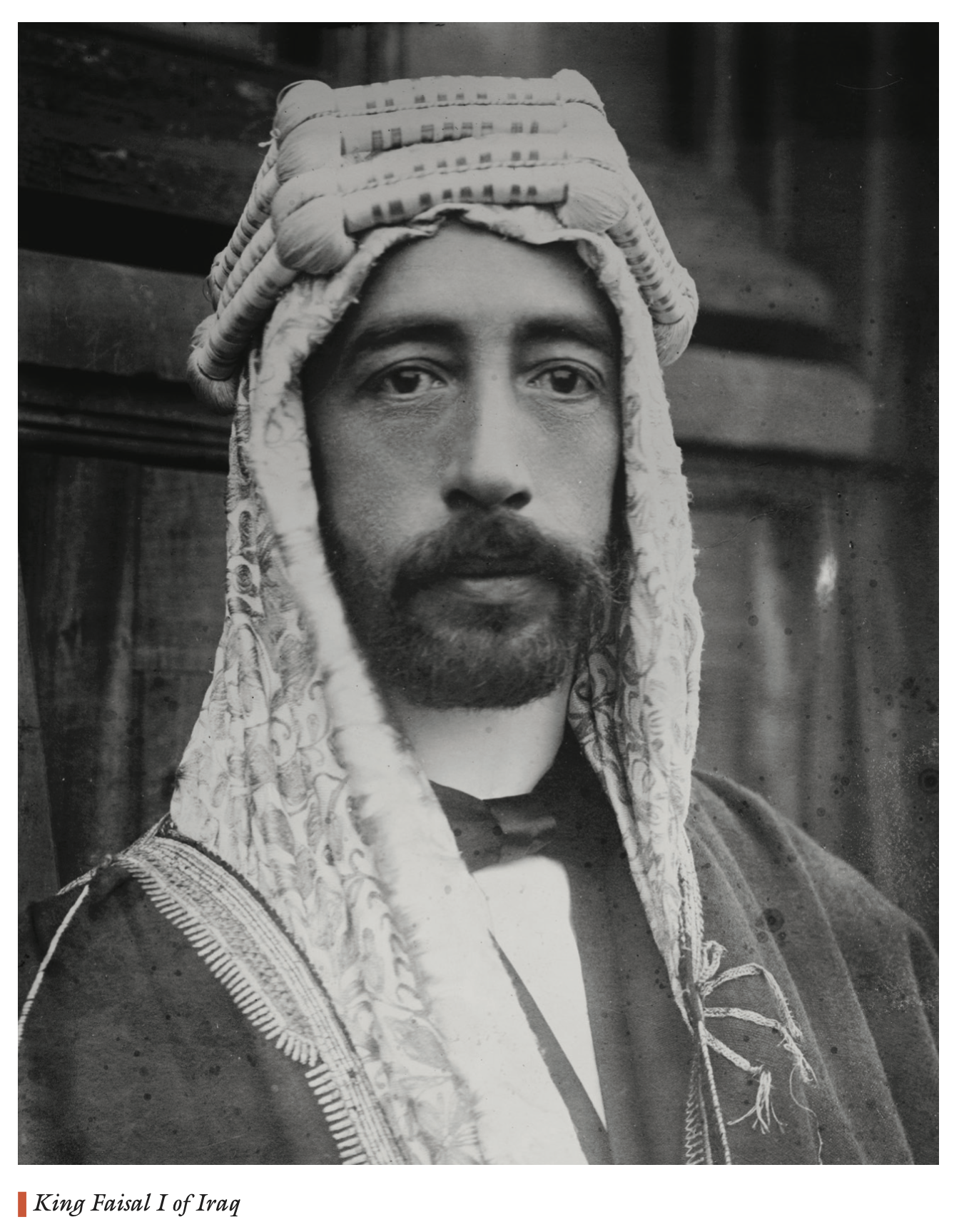
Mahmud left Baghdad for Kirkuk by train on September 20, 1922. When he reached the railhead four miles from Kifri the next morning, hundreds of horsemen from the local tribes invaded the station, shouting and waving banners. They dragged the skeikh away in triumph before an official deputation from Sulaymaniyah could give their speeches of welcome.
The rapturous reception quickly erased Mahmud’s memory of the limits imposed upon him by the British. He reached Sulaymaniyah on September 30 and was greeted as ruler of an independent Kurdistan.
The local press emphasized that the Major Noel, who had been appointed by the British as Liaison Officer, was nothing more than a Consul to serve as a go-between with the High Commissioner. On October 10, 1922, a decree “given in Sulaymaniyah the capital of Kurdistan” announced the formation of a cabinet, and in November, Mahmud assumed the title of king.
Richard Wilding produces award winning exhibitions, films and books that explore the history and heritage of Kurdistan and other regions of the Middle East.
Since 2012, Richard has been Creative Director of Gulan, a charity which promotes Kurdish culture in the UK. In 2021, he was elected as a Fellow of the Royal Geographical Society, London.
Richard is currently producing a film about Shaikh Mahmoud and 100 years of Kurdish / British relations.
